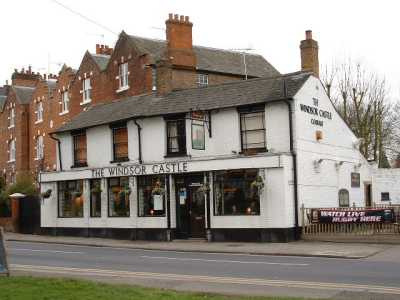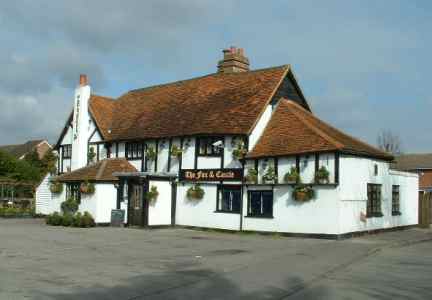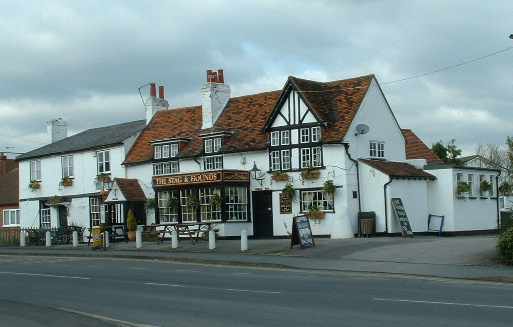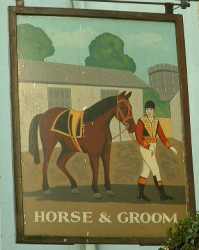| |
history: |
In 1842 The
Horse & Groom was run by a Mr Cutt.
Some Selected Reports from The Windsor
and Eton Express 1842
Windsor Police - Monday
[Before John Clode, Esq. (Mayor), R.Tebbott, Esq.,
Wm.Legh, Esq. and Mr.R.Blunt, Esq.]
This was the day fixed for hearing two
charges of assault which had been last week preferred against Charles
Brown, one of the borough policemen . At the commencement of the
proceedings
Mr.Tebbott, addressing his brother magistrates, said the Mayor having
on Thursday last done him the honour of placing him in the chair when his
worship was obliged to leave the court, he found that after one case against
the policeman had been heard for an assault on a female, there were two
others, and therefore he had felt it his duty to call a bench of magistrates
to hear them. He thought whether the charges were true or not it was
desirable that they should be heard. The first case against Brown was
that of assaulting a female in the Long Walk, and in that he (Mr.Tebbott)
believed Brown was labouring under a mistake as to the person, but it
was proved that he knocked her head against a tree -
Mr.Blunt - But we ought not to go into that case now. It is disposed
of.
Mr.Tebbott said he was only doing his duty and exercising his right
to state the fact. Brown was putting that young woman by force over
the stile, when she fell, and he fell upon her. She brought a witness
forward, who, however proved very little, excepting that he saw Brown
take her by the neck and heels, and endeavour to throw her over the stile.
Brown produced a witness named Massey, who said he saw her
putting her over the stile, but he did not see him strike her. The young
woman, however, had two other witnesses, but they were not in attendance,
and the case was adjourned. He (Mr.Tebbott) was desirous that those
two witnesses should attend, for it was a matter in which the public would
naturally take an interest. Notwithstanding some observations that had been
made in a newspaper [alluding to some remarks on the case in a Bucks paper],
he could only say if the evidence he referred to had been produced he should
certainly have felt it to be his duty to dismiss the policeman from his
situation. He knew well that the police were very much aimed at, and it was
the magistrates duty to protect them, but if they overstepped their duty, it
was their (the magistrates) province to take notice of it, and to act as
became them.
The Mayor said in the case of the young woman there was no doubt an assault
had been committed by Brown upon her, and had it not been for
Mr.Tebbott wishing for further evidence, a conviction would have taken
place.
Brown was then charged with assaulting John Webb. The
complainant, who is a stonemason, stated that on the Saturday week, shortly
after 12 o'clock , having come out of Mrs.Cutt's public-house,
(The Horse & Groom) on Castle-hill, where there had been a club
meeting, he stood talking to a friend, when Mr.Gillman, the
superintendent of police, and Brown, came by. Brown ordered
him to move on; he did not immediately go, and Brown then pushed him
on, pushing him as far as Mr.Adams's, the butcher's shop, where he
fell down from Brown's violent pushing; he got up again and was then
pushed towards the market place, when Brown was called away by
Mr.Gillman, who said "Come along, the man will go home if you let him
alone." Complainant said he was not drunk, having only had two pints of beer
and a pipe of tobacco the whole evening, neither was he talking to his
friend in a loud tone.
Richard Lown corroborated in part the statement of Webb, and
added that Brown was smoking a pipe at the time, which he (witness)
told him he had no business to have. Webb and his friend had not been
quarrelling ; they were only talking together.
Brown denied he had a pipe in his mouth at that time, although he had
afterwards. There were six or seven persons there very noisy for half or
three quarters of an hour afterwards.
Witness - When Webb was shoved along he went home, and I also went to
my home. I did not afterwards go to Cutt's house.
Brown said the witness was there for nearly an hour afterwards, and
there was a drunken man with his son there, who were going to Slough, and he
(Brown) and Silver, another policeman, set them on the right
road to that place.
The witness declared he was at home and in bed at the time the policeman was
speaking of.
Brown was called upon for his defence. He said it was nearly one
o'clock in the morning when, as he was near Mr.Banister's house, he
heard a noise and disturbance on Castle-hill, and he and Mr.Gillman
went there and saw Webb and others: Mr.Gillman said,"Come, my
lads, it's a late hour, and time to break up." Webb asked Gillman
"if he wanted a job to night ?" to which the latter answered that he did not
want them to be standing there disturbing the neighbourhood at that time of
night. The parties were drunk, and Mr.Gillman desired him to move
them on. He spoke civilly to Webb, who said he would go when he
liked, and that he (the policeman) did not know his duty. He then related
some abusive expressions used by Webb, and at last he pushed Webb
by the shoulders, but used no more force than was necessary to get him to go
away: Webb resisted, and when near Mr.Adams's he fell down,
his hat fell off, and his handkerchief fell out of his hat. He (Brown)
picked up the handkerchief and hat, and put the latter on complainant's
head. Webb was very drunk, and needed no pushing to fall down. He
also used very bad language. Mr.Gillman afterwards called out "let
him alone," and he did so, and saw no more of him afterwards. The defendant
also said that Lown, the witness for the complainant, was about an
hour afterwards making a disturbance.
The defendant here requested that Mr.Cutt should be sent for, which
was acceded to by the bench.
Mr.Gillman corroborated some parts of Brown's statement, and
said the complainant and his friends were making a great noise. Webb
was decidedly drunk. Witness advised him to go home, but he would not - he
was obstinate and would not go away. Brown used no more force than
was necessary, and when he got Webb as far as the market-place he
called to Brown - "Come along, perhaps the man will go home." He did
so, and there the matter ended. Brown was sober. The policemen were
allowed to smoke a pipe after twelve or one o'clock, when the streets are
quiet. Lown , when he went away from the complainant , went back to
the public house. Witness did not see Webb fall down - he was
probably round the corner.
James Cutt, son of the landlady of the public-house, was called, and
he deposed that he served the complainant with only two pints of beer and a
pipe of tobacco on the evening in question. He could not tell how long
Lown was there, nor what he had. It was a club night; there was a raffle
there, and a great number of persons were in the house. Witness saw the
policeman push Webb along the street. He did not see Lown
return to his house after that, but he could not swear he did not.
After some further evidence the magistrates decided that in their opinion
Brown did not use more violence to remove Webb than was necessary
to induce him to go home. Webb and his friends had come out of the
public house at a late hour of the night, and there had been a great deal of
talking in the streets, and Brown had done no more than his duty in
desiring the complainant to go home. The magistrates would, therefore,
dismiss the case, but they hoped that Brown would in future - if he
had on this occasion used any violence - be more cautious, and not push
people down. If he should find any opposition he could call for other
assistance, and not use unnecessary violence.
The charge was then dismissed, and the bench gave a caution to Mr.Cutt
about the future management of his house. |
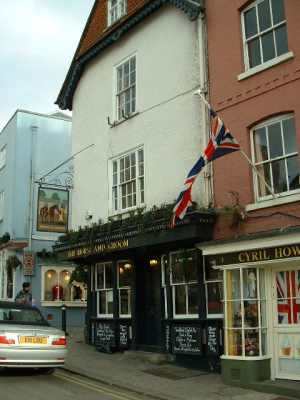
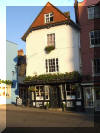 click picture to enlarge
click picture to enlarge